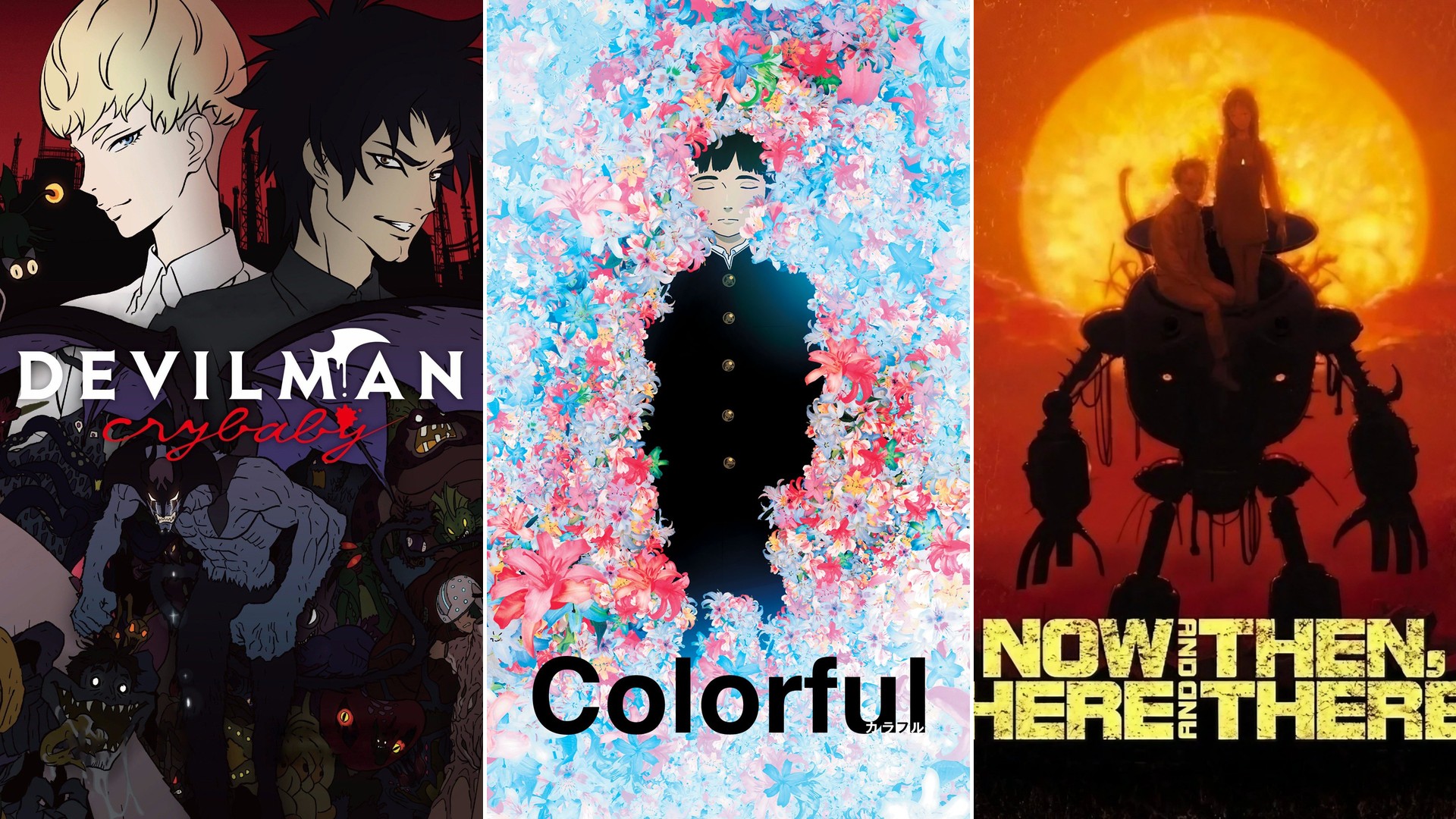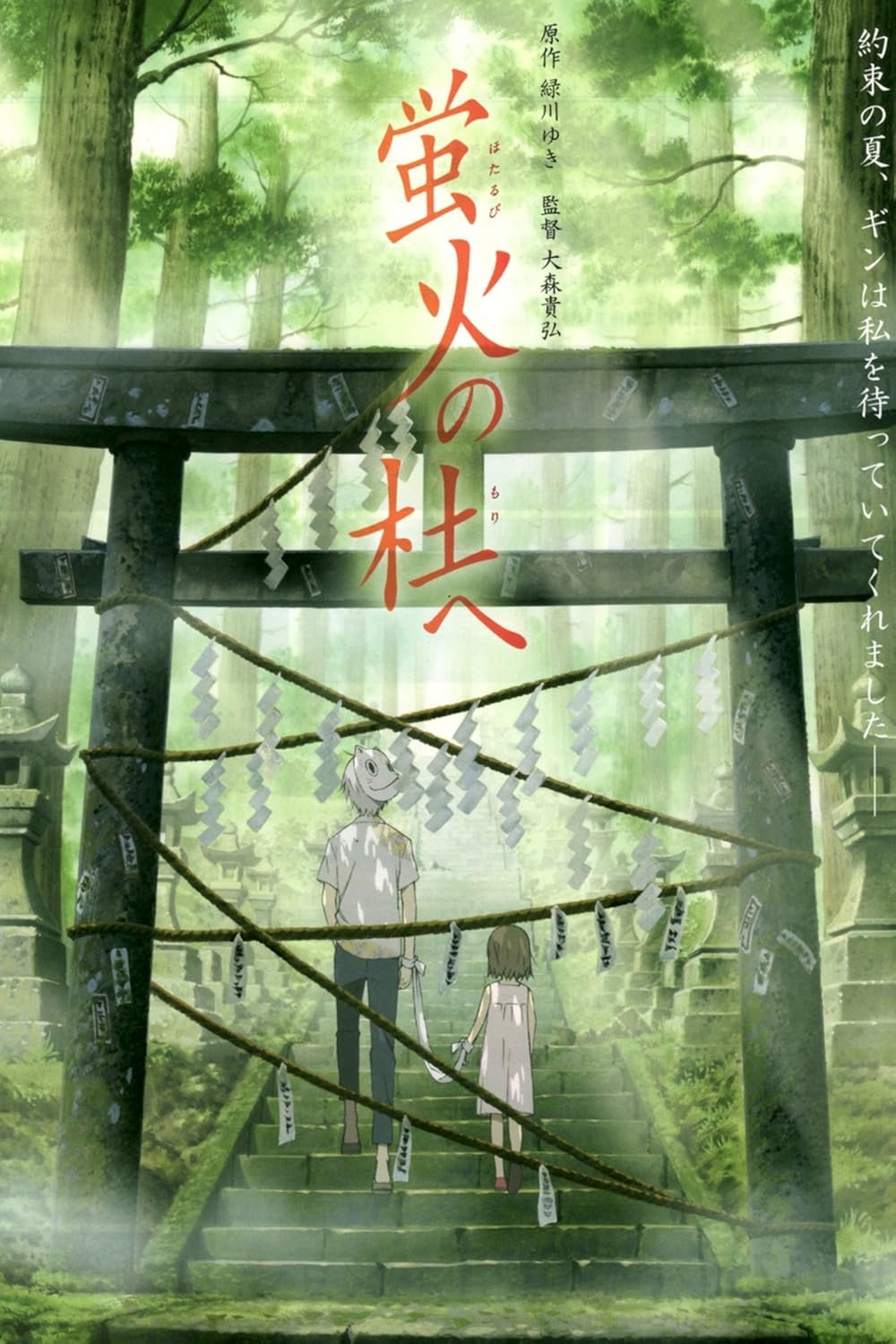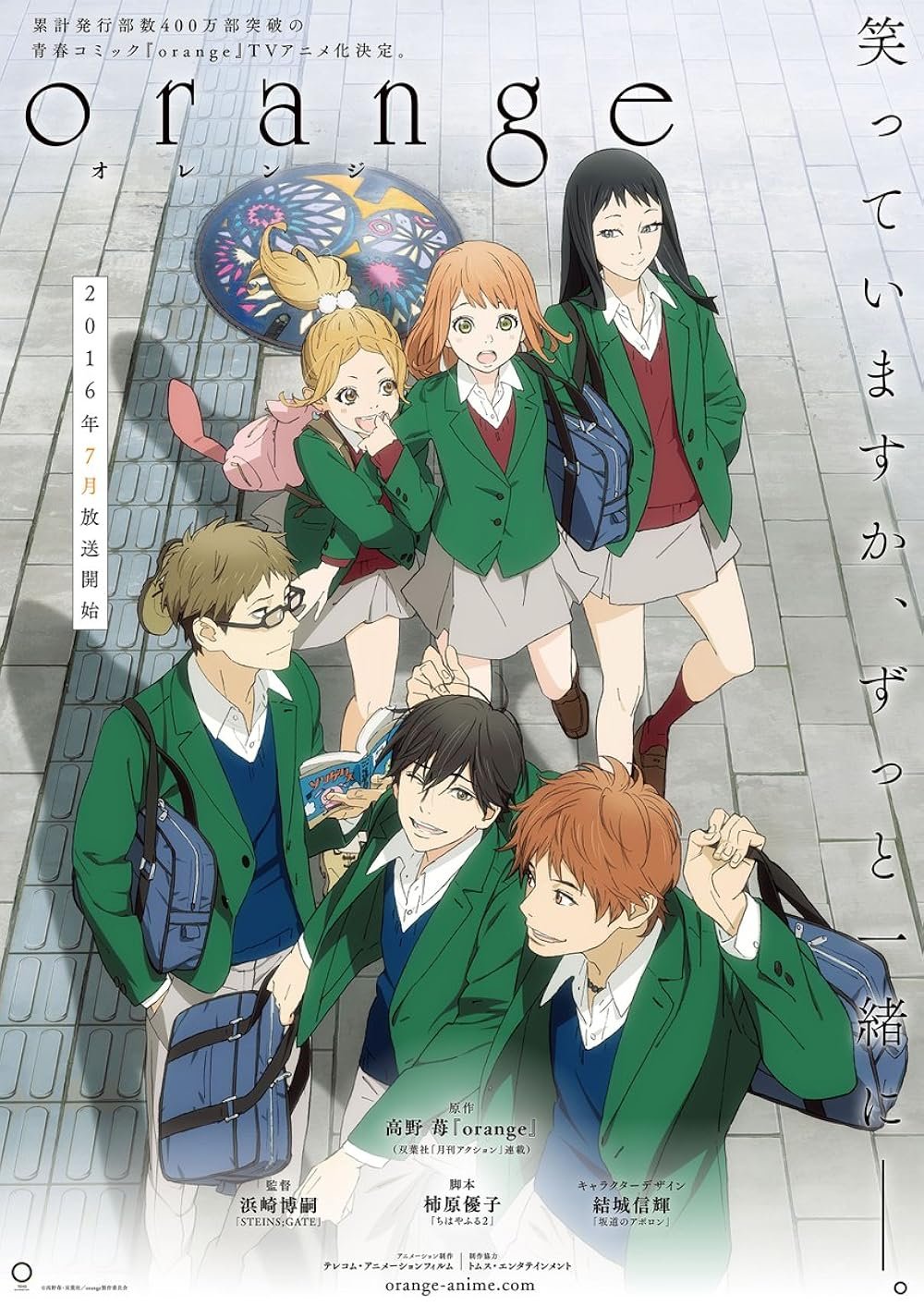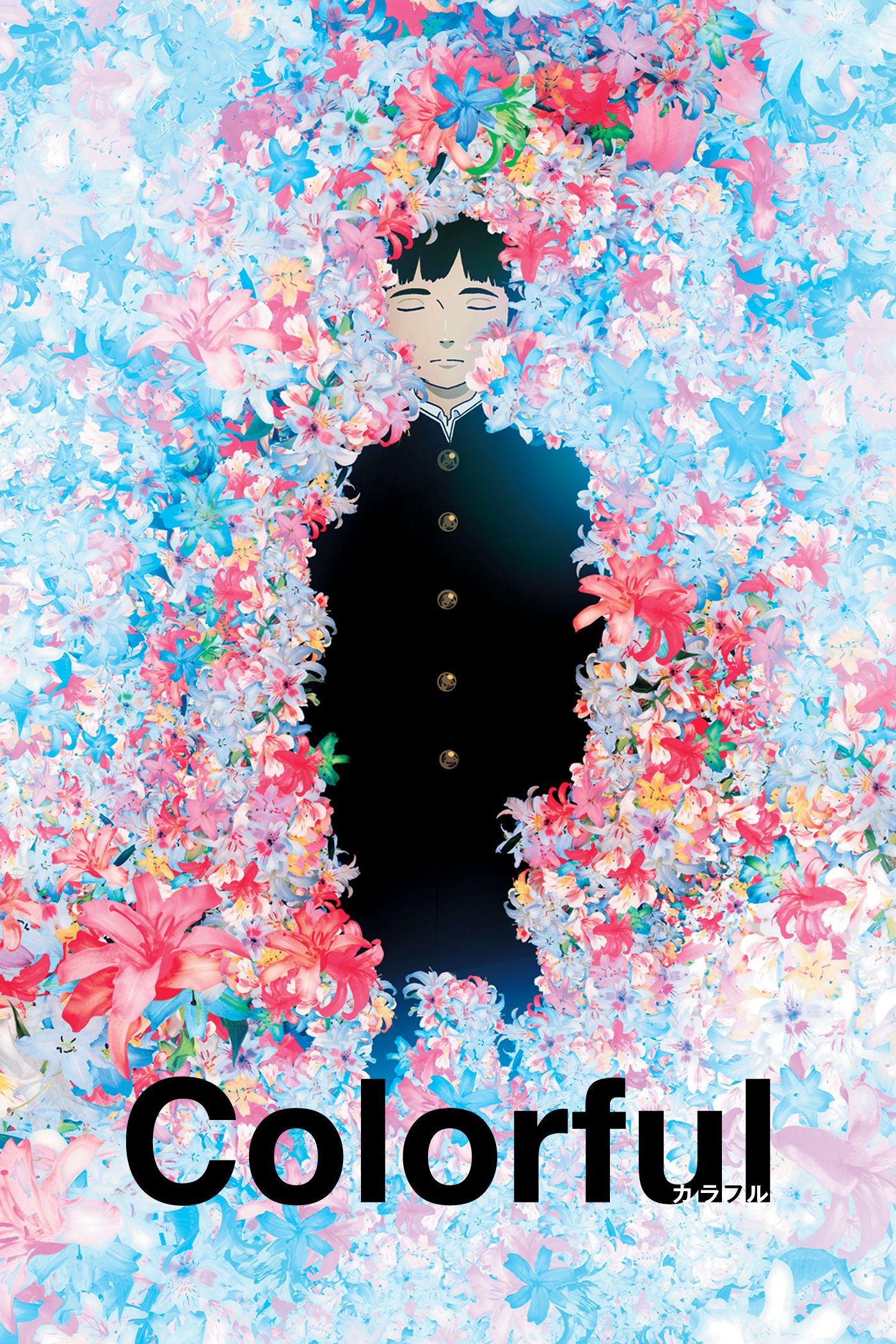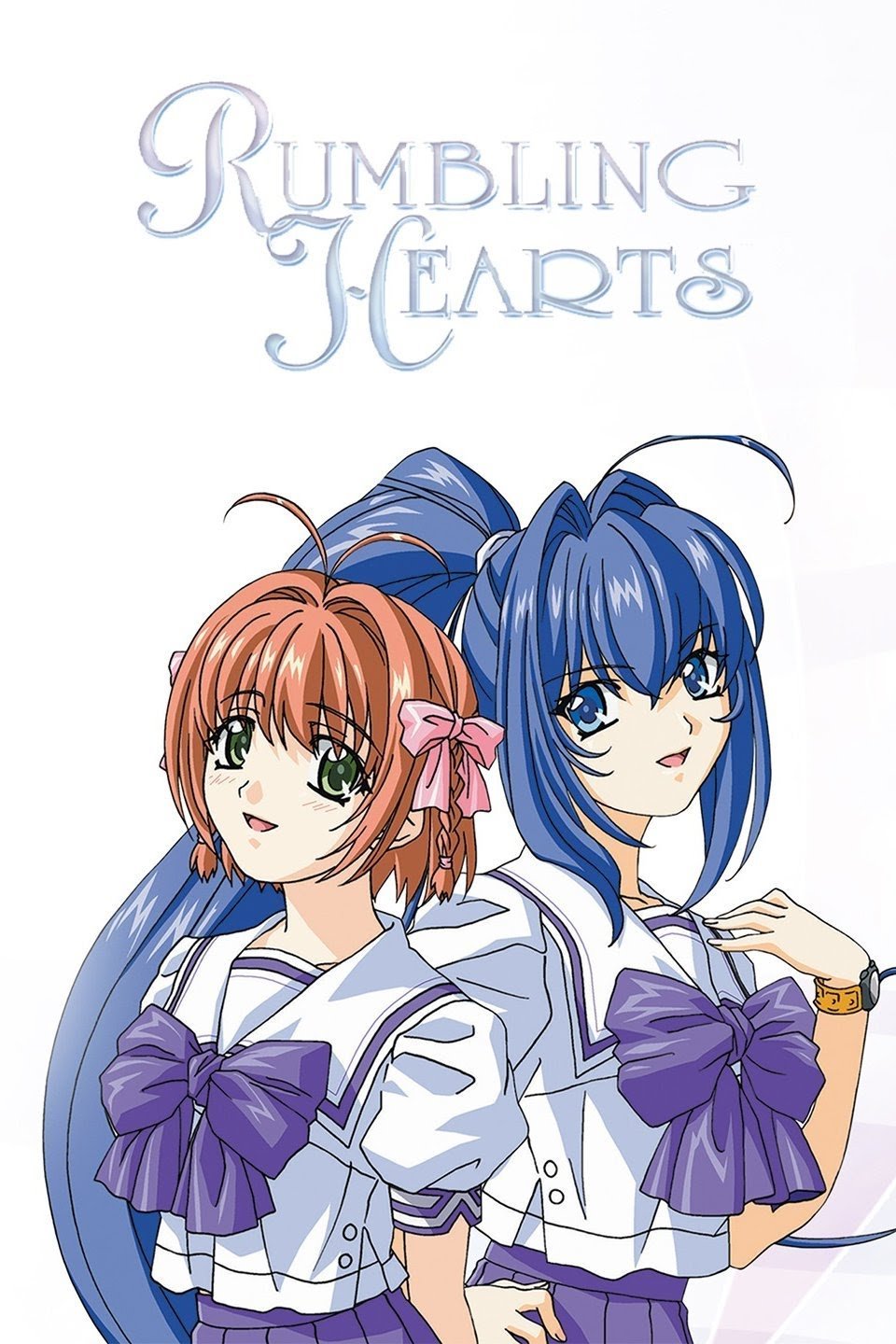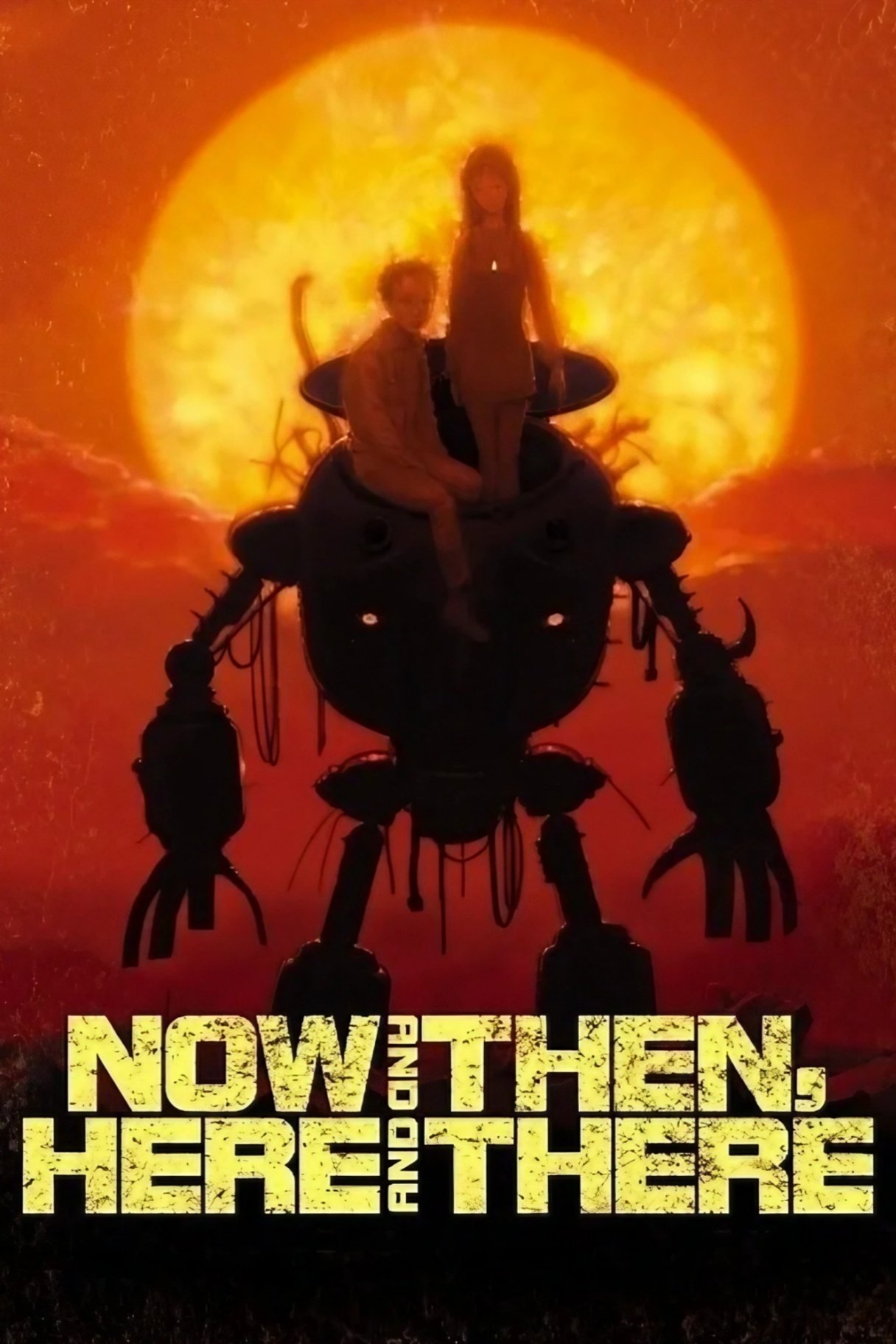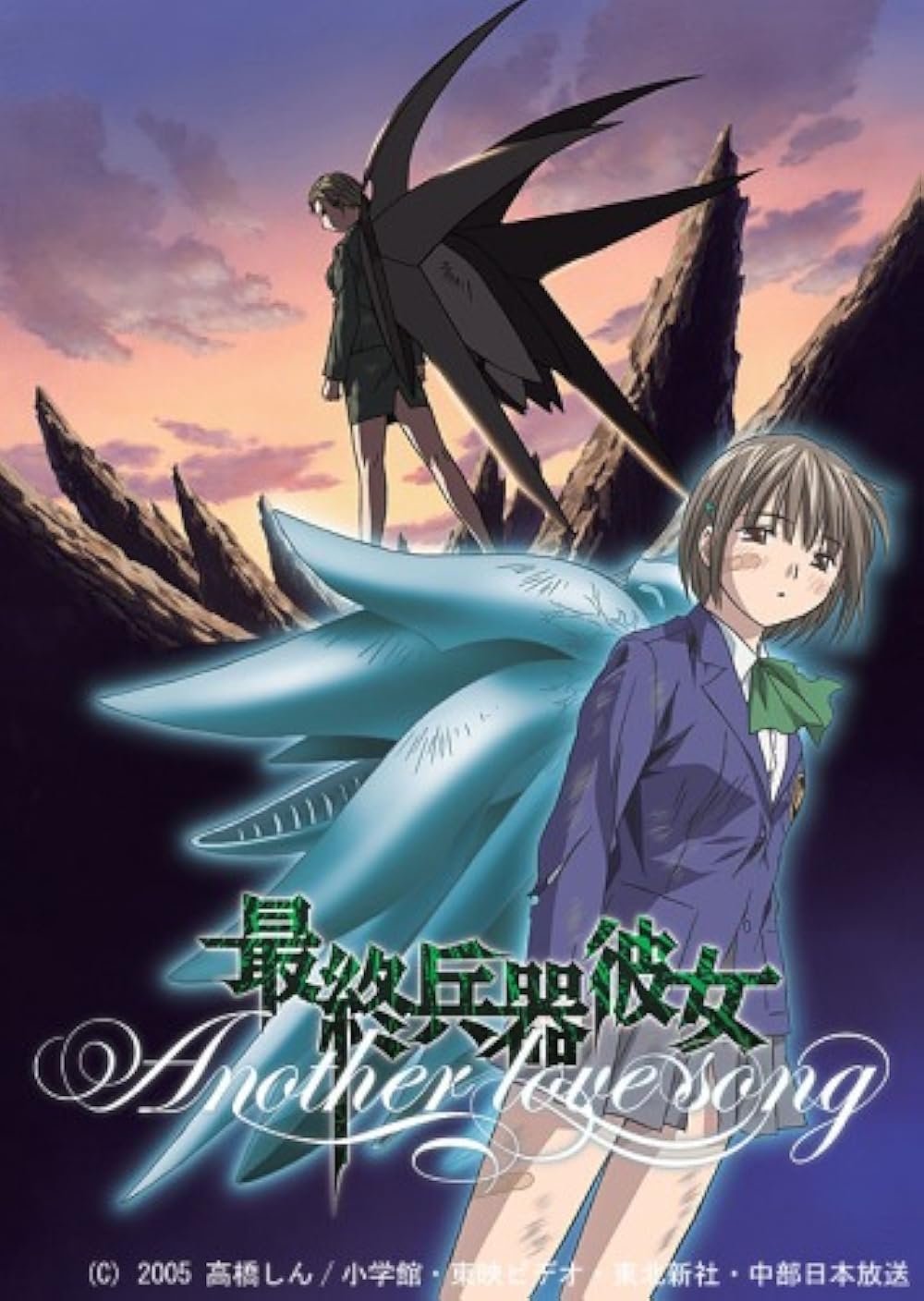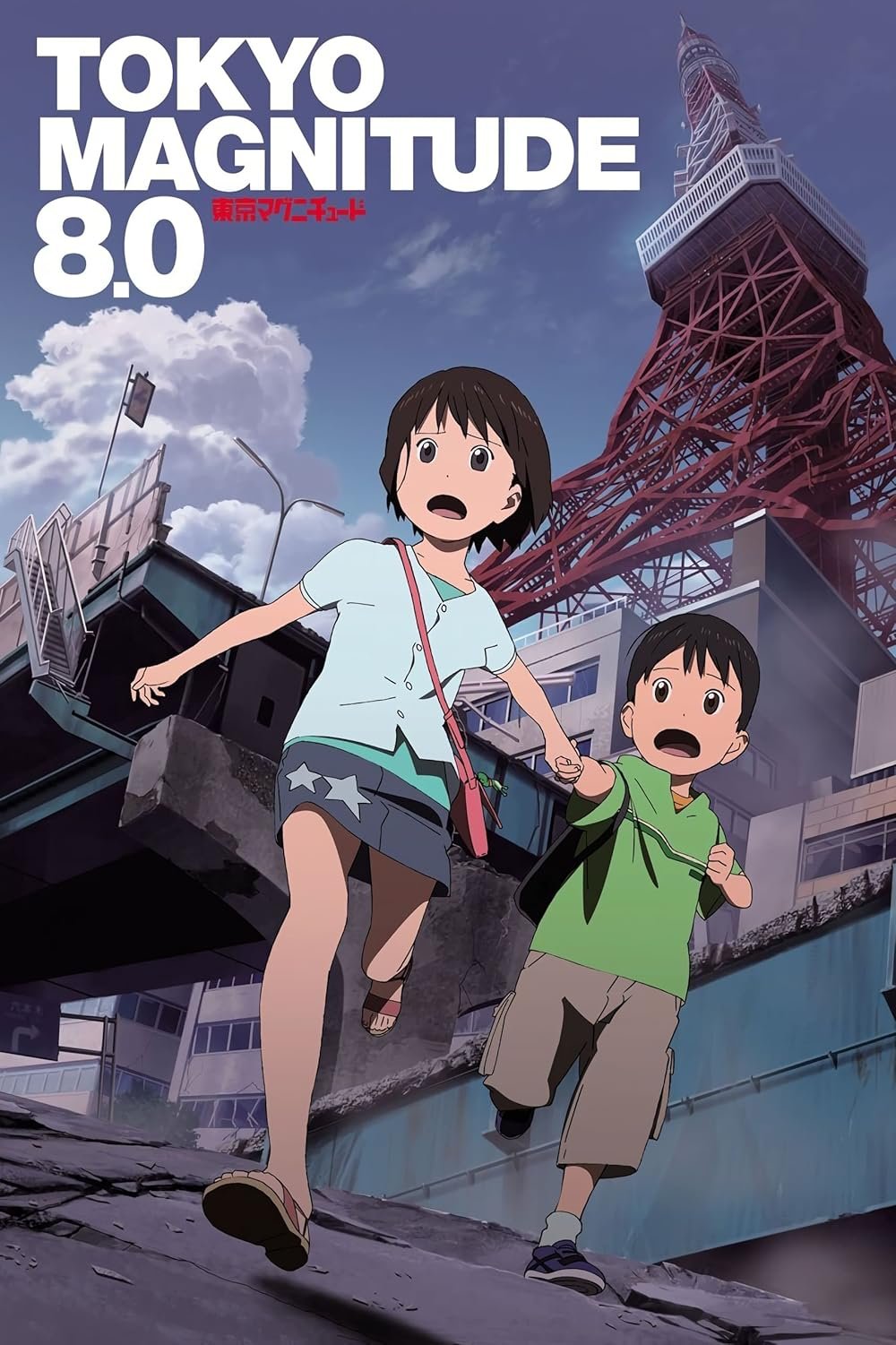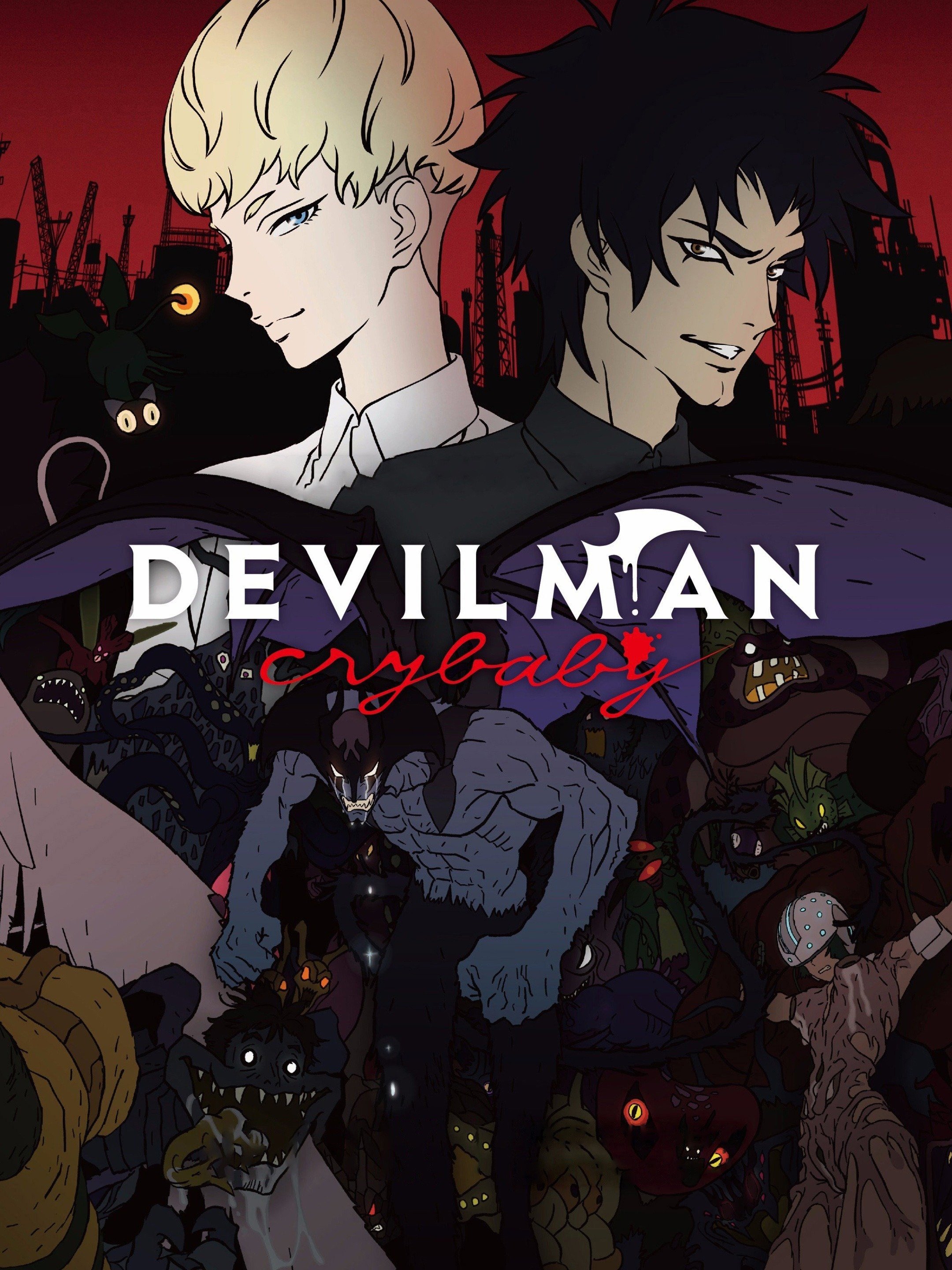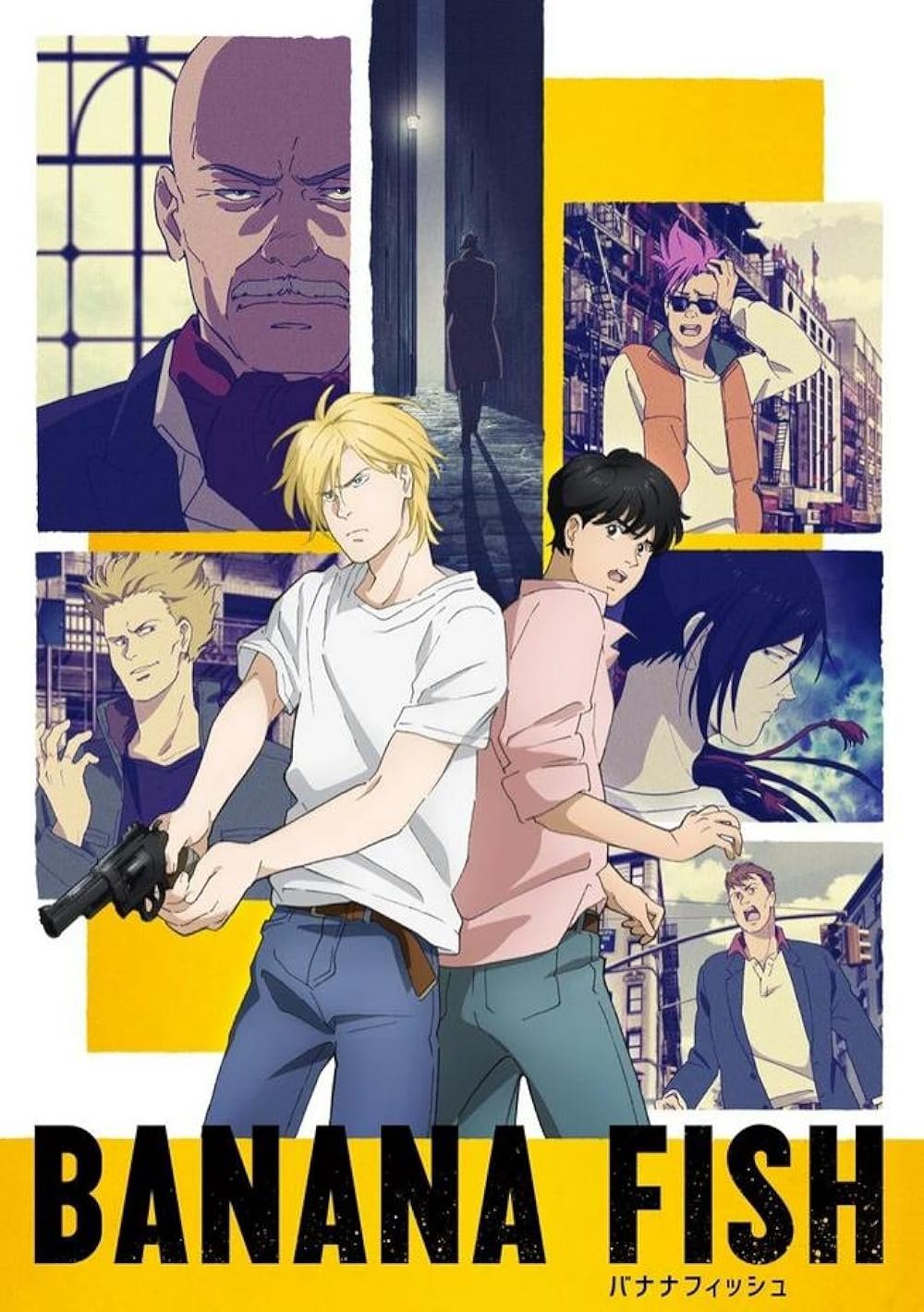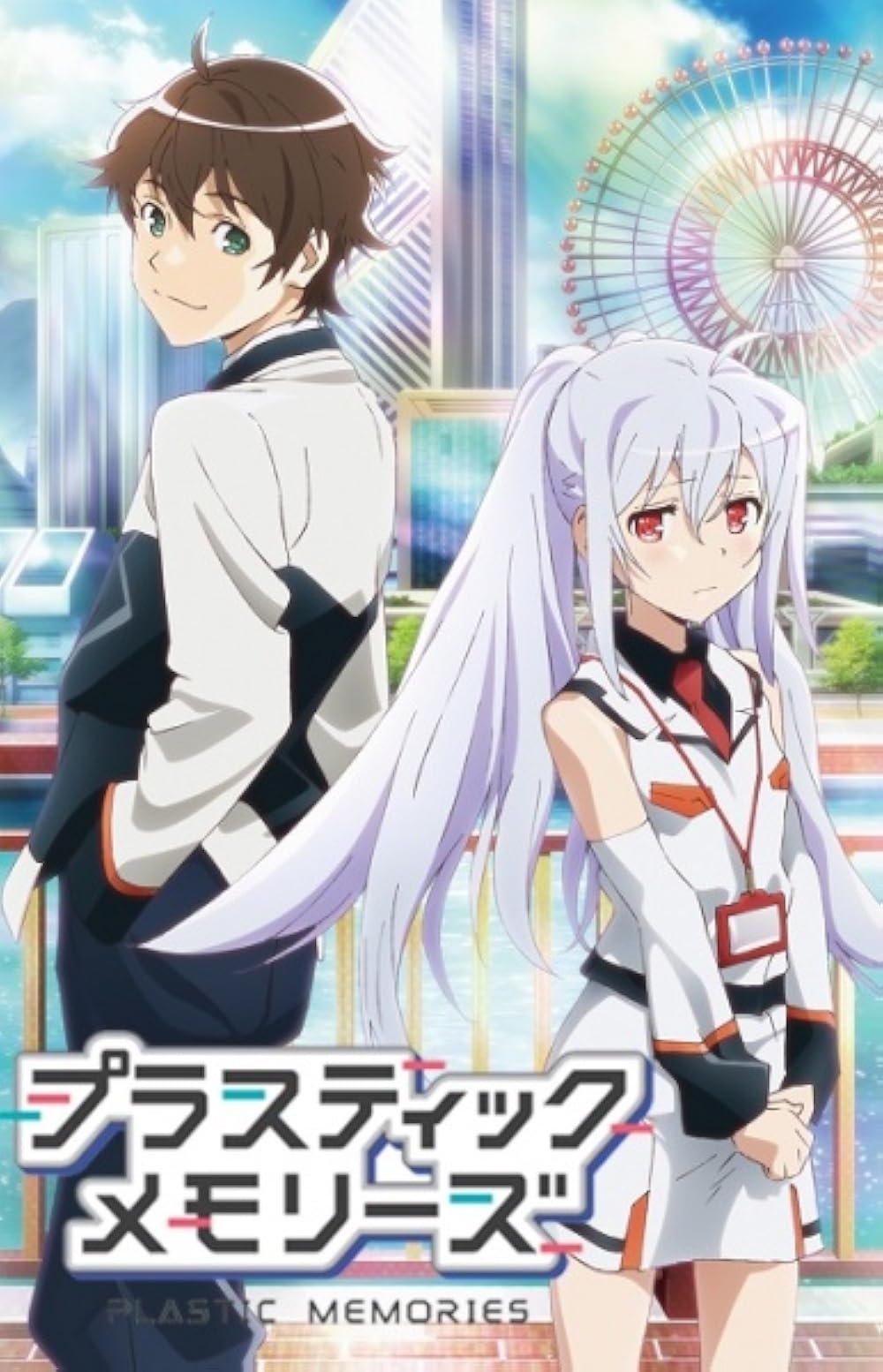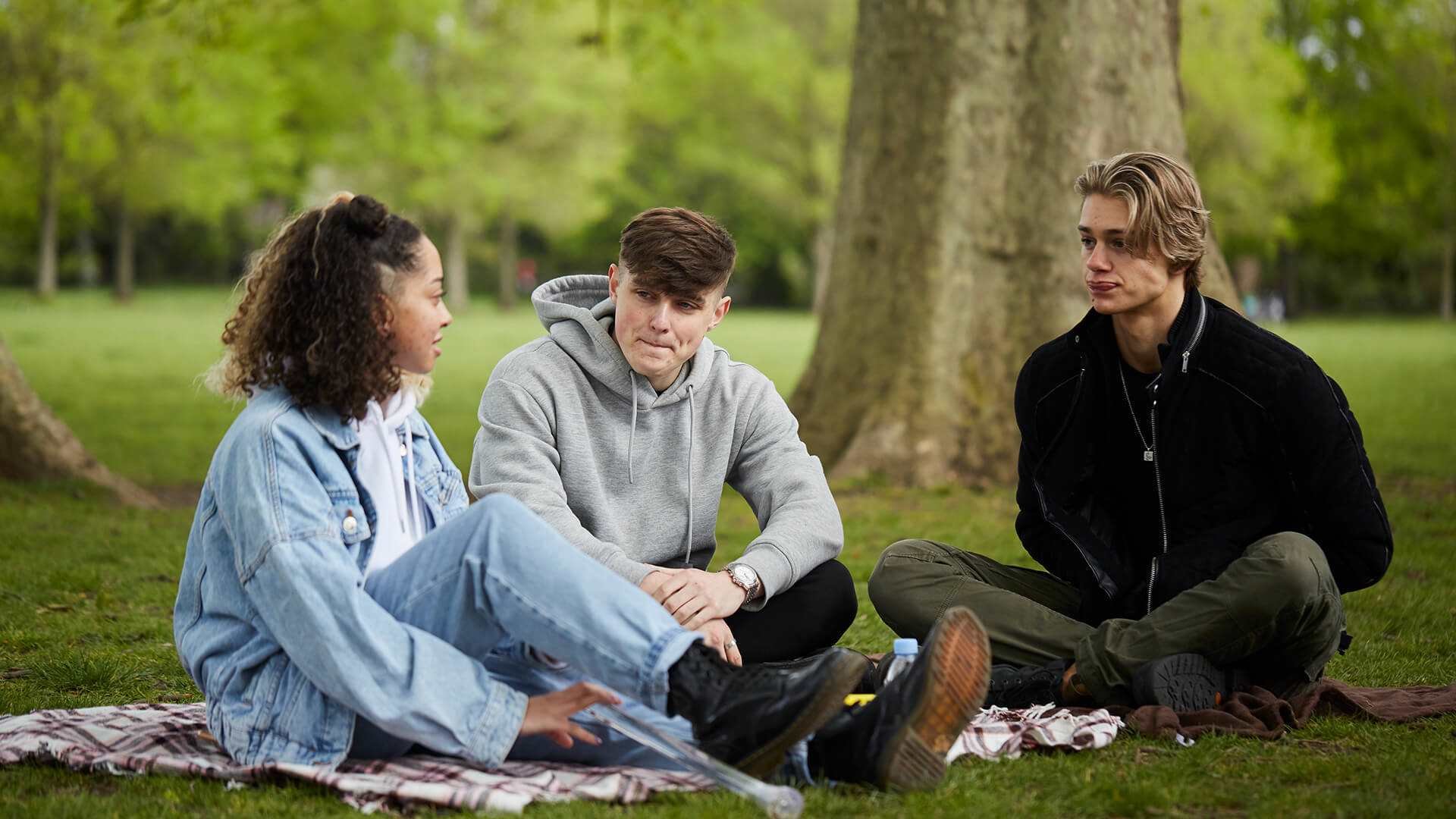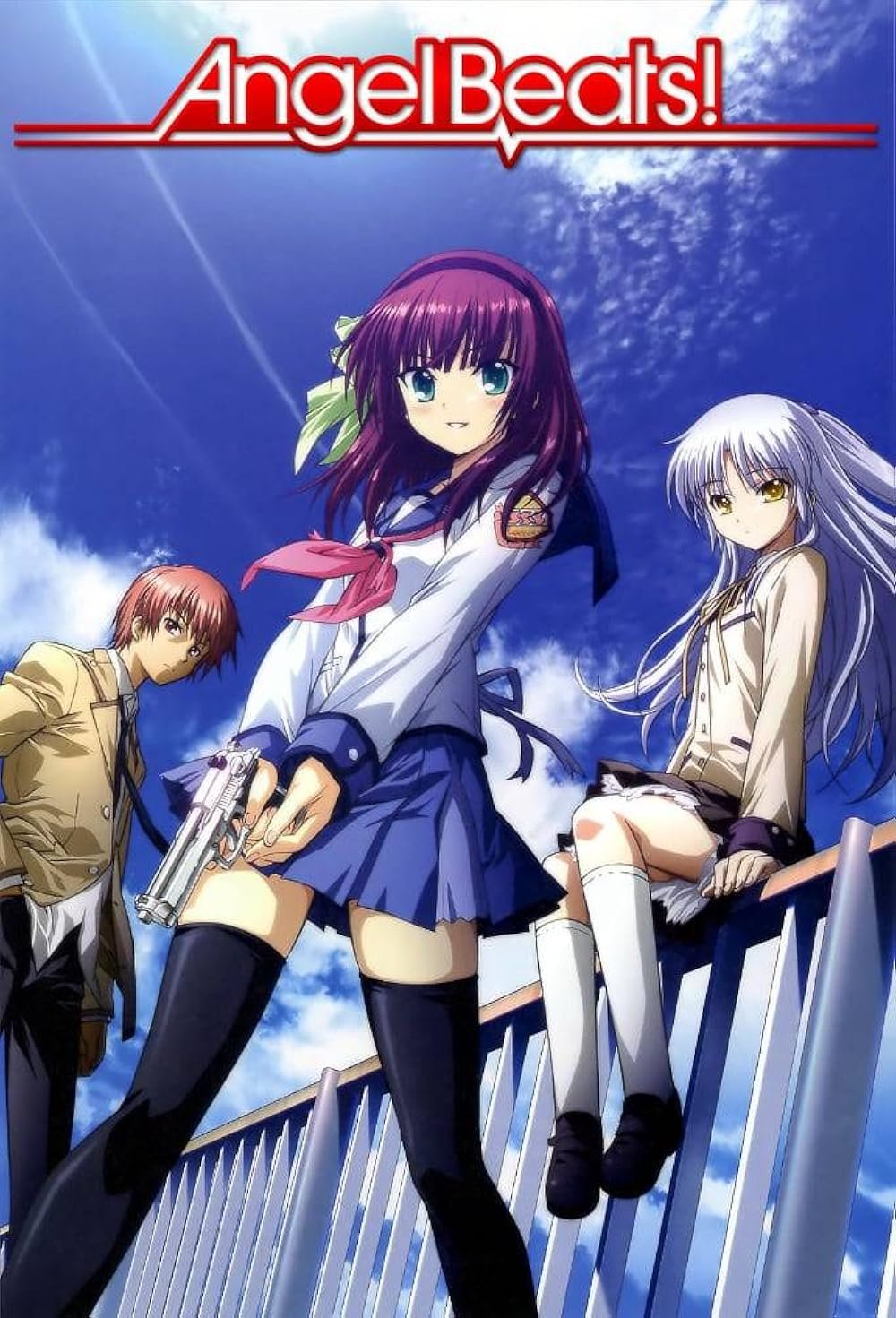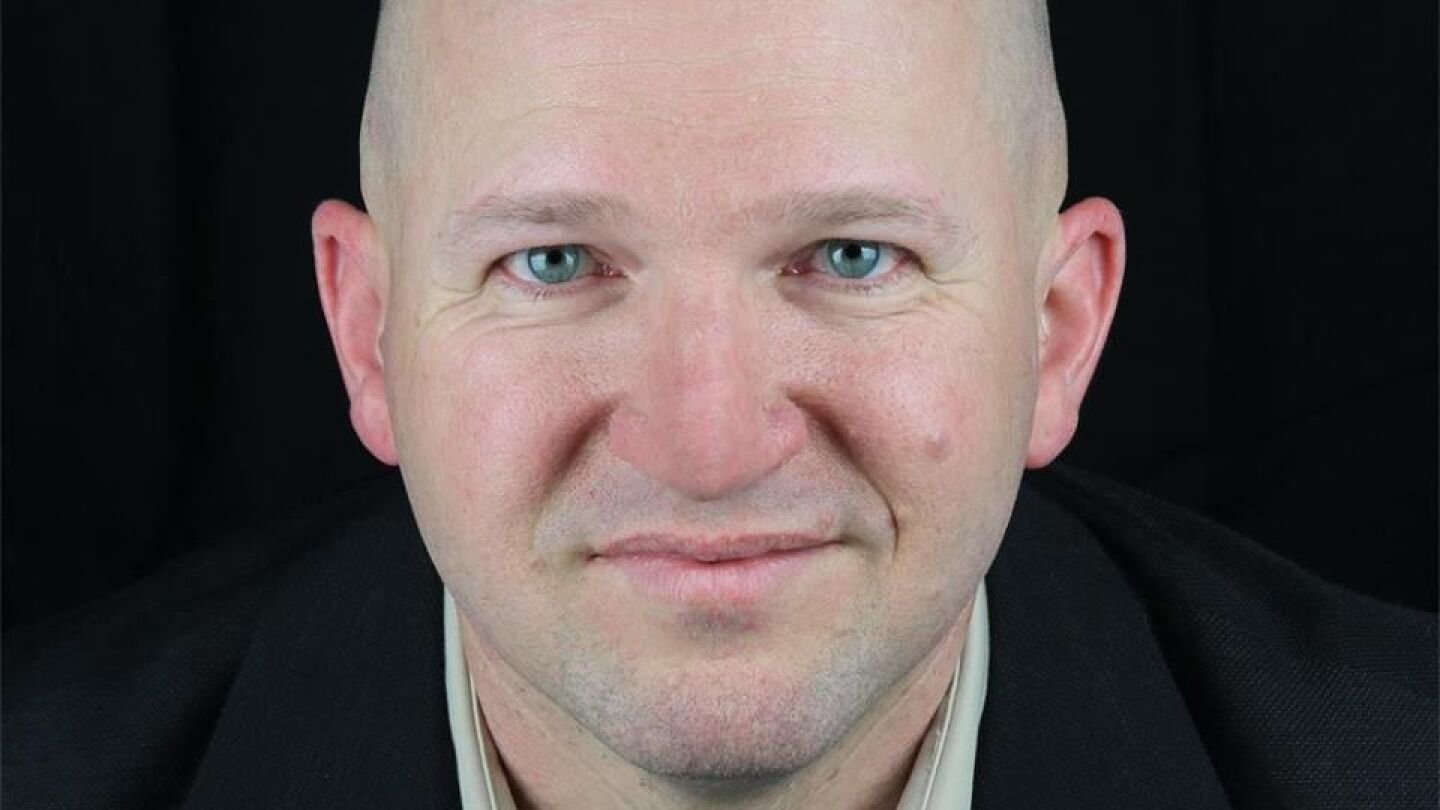These picks focus on stories where loss, regret, and love leave a lasting ache. Some are short films, others long series, but each one sits with pain in a way that feels honest and human.
Order is subjective, so think of this as a path that starts soft and ends with the heaviest hits. Expect spoilers at times, since discussing why these shows hurt often touches on how their stories land.
#22 Hotarubi no Mori e
This gentle film tells the summer meetings of Hotaru and Gin, a spirit who cannot be touched by a human. A simple rule shapes everything, and the closer they grow, the more that rule feels like a quiet knife. The forest setting turns into a place where joy and risk are the same thing.
What makes it sting is how soft it all feels. There is no villain, only a boundary that love cannot cross without a cost. The final moments are small, but the weight is immense, like a memory you can’t hold for long.
The film leaves you with that sharp mix of sweetness and grief. It’s the kind of sadness that feels true because nothing cruel needs to happen for it to hurt.
#21 Orange
Orange follows Naho and her friends as they receive letters from their future selves asking them to save Kakeru. The premise frames teenage life around second chances and the heavy shadow of depression. It is direct about how hard it is to notice someone’s pain until it is too late.
The series is strongest when the group acts together. Friendship becomes a safety net built from small choices, not grand gestures. The letters push them, but the real change comes from daily care and shared time.
What hurts most is the fear of regret. The show asks if a different word or a different plan could have kept a friend here. That question sits with you because it is real for many people.
The art and pacing stay gentle while the topic stays hard. That contrast makes each smile feel fragile, which is why the ending lingers as hopeful yet bittersweet.
#20 5 Centimeters per Second
This film is about distance that starts small and becomes permanent. Trains, snow, and missed timing turn young love into two separate lives. The focus on routine makes the loss feel ordinary, which is what makes it sad.
The soundtrack and long pauses sell the feeling of time slipping. There is no sudden break, only slow drift. That slow drift might remind you of people you still think about even if you never call. Ordinary days become proof of a gap that will not close.
By the end, it does not scream for tears. It whispers that some stories end with a nod and a walk away. The quiet is the point.
#19 Colorful
A lost soul gets a second chance by living in the body of a boy who attempted suicide. The task is to learn why life is worth holding, and the answers are not easy. Family strain, school pressure, and shame wrap around every scene like a tight rope.
Colorful does not rush to comfort. It lets small acts of kindness fight against layers of hurt. That makes the steps toward living feel earned rather than neat.
The sadness is heavy but never cruel for its own sake. It shows that understanding someone’s pain takes time and patience. When the final truth lands, it feels like a quiet breath rather than a big twist, yet the weight is real.
It stays with you because it treats despair as something people can meet together. It respects how hard that is, and it respects the value of choice.
#18 Rumbling Hearts (Kimi ga Nozomu Eien)
This is a story of love, a tragic accident, and the fallout that lasts for years. A tight group shatters, and the show sits with the mess that follows. No one gets what they wanted, and every decision has a cost.
What makes it painful is the way hurt spreads. People try to heal with silence or sacrifice, and they end up cutting each other more. The series is open about the damage that comes from guilt and indecision.
It is not a clean romance. It is about how adults carry grief, how they settle, and how they regret. The result is uneasy but honest, which is why it lands as a deep, human kind of sad.
#17 Now and Then, Here and There
A cheerful boy is pulled into a war-torn world where hope is scarce. The show does not look away from abuse, child soldiers, and power used like a hammer. The tone is brave and bleak at the same time.
Every small kindness matters because cruelty is routine. You watch the lead try to keep a simple promise in a place that crushes promises. That tension is what makes the sadness feel earned rather than staged.
The series is tough to watch, but it gives meaning to survival. It argues that even tiny acts can be defiant. The pain is not there to shock. It is there to push the value of mercy.
By the end, you remember faces more than plot beats. That is the mark of a story that treats suffering as personal, not just a setting.
#16 Saikano: She, The Ultimate Weapon
Chise is turned into a living weapon while trying to hold a fragile first love. War sits in the background, but the real core is a couple trying to stay human. Each episode asks what you lose when your body becomes a tool.
The sadness builds as her emotions and identity start to slip. The show ties big destruction to small moments between two teenagers who want normal days. That contrast cuts deep without feeling cheap.
It hurts because it treats love as something made of daily effort. When daily life breaks, the relationship bends too. The ending feels like the only path left, which is why it hits hard and stays heavy.
#15 Tokyo Magnitude 8.0
Two siblings are caught in a massive earthquake and try to find their way home with help from a young woman. The show treats disaster with care, from infrastructure failure to human fear. It feels like a lived city rather than a set piece.
The bond between the siblings grows under stress. Small choices, like sharing water or waiting for updates, turn into lifelines. The series is careful with hope, which makes its twists land even harder.
What stays is not the scale of damage but the way people carry each other. The final stretch is quiet and tender in a way that breaks you. It is a story about being brave for the person walking beside you, which is love.
When the credits roll, you remember a backpack, a promise, and the cost of going on. The sadness is earned by steady, human detail.
#14 Devilman Crybaby
Akira becomes a Devilman to protect people, and the world falls apart anyway. The series is loud, bloody, and strangely tender about friendship. It shows how fear can turn crowds into a storm that swallows everyone.
The heart of the pain is in bonds that cannot survive the fire. Choices made from love lead to ruin, and the cost keeps rising. The last images are stark and final, leaving you with a hole that will not close.
It is a tragedy that refuses neat comfort. Even in the chaos, the show keeps its eyes on loyalty and loss. That is why the ending feels inevitable and cruel at once.
#13 Banana Fish
Banana Fish follows Ash, a brilliant young leader, and Eiji, who becomes his closest friend. Their bond tries to stand against trauma, crime, and a system built to use people. The show never lets you forget what Ash survived.
Every moment of peace feels borrowed time. Eiji brings warmth, and that warmth is what makes the danger hurt more. The story respects their connection without turning it into easy wishes.
The final stretch is quiet and restrained, which somehow hurts more. You are left with letters, promises, and the weight of a life cut short. It is the kind of ending that feels true to the world it built, which is why it lingers as deep sadness.
It stays with you because it shows resilience without pretending it fixes everything. Love matters, but the world is not always kind.
#12 Plastic Memories
In this future, androids called Giftias have a limited lifespan. Teams retrieve them before memory loss sets in. The job is hard because each goodbye involves people who loved someone who was never meant to stay long.
The central romance is set on a timer. That clear limit makes every day bright and painful at the same time. The show builds meaning from small dates, small gifts, and small talks, not grand scenes.
When the end comes, it is gentle and crushing. It asks you to accept that love can be full even when it is short. The tears come from gratitude as much as from loss.
Also Read
10 phrases that sound supportive but are actually a subtle sign of manipulation
#11 Angel Beats!
A group of students wake in a school-like afterlife built around regrets. They fight, joke, and slowly face what they left behind. The mix of comedy and drama makes the hits come out of nowhere.
Each character gets a moment that shows what they carried. Music scenes turn into catharsis, and simple kindness becomes a sendoff. When people graduate from this place, it feels like a hug and a goodbye at the same time.
The last reunion and parting are the keys. It suggests you can accept your past and still want one more moment. That balance makes it a rare blend of warm and sad.
By the end, silence in the empty school halls feels earned. The story treats closure as a gift, not a cure.
Also Read
10 Phrases That Sound Supportive But Are Actually a Subtle Sign of Manipulation
#10 Wolf Children
Hana raises two kids alone after the death of their father. City life fails them, so she moves to the countryside and learns to farm. The film is about labor, seasons, and the mess of parenting when your children are different.
The kids grow in opposite ways, and the house becomes a place for choice. Every repair and harvest is an act of love. The storm near the end is as much about letting go as it is about danger.
The tears come from pride as much as sadness. Watching a parent accept who their children are is deeply moving. The movie says that loving someone means preparing to wave from the doorway, which is hard.
#9 Violet Evergarden
Violet, once a child soldier, writes letters to express feelings she cannot yet name. Each client brings a new kind of grief, from lost family to love that cannot reach. The show is polished and patient, letting emotions breathe.
Also Read
People With Low Emotional Intelligence Often Miss These 6 Social Cues
Its strongest episodes turn writing into a bridge. Words become acts of care that help people face what they avoided. The craft of the letters is as important as the tears they cause.
Violet’s own healing is slow. She learns that apology is not always enough and that kindness can be learned. The payoff arrives in quiet scenes that show growth more than grand answers.
It is sadness built on empathy. The show argues that listening closely is a form of love.
#8 To Your Eternity
An immortal being starts as a blank and learns by forming bonds. Every connection leaves a mark, and every loss reshapes it. The premise makes death a teacher more than a twist.
Also Read
8 Weird Habits You Don’t Realize You Have From Growing Up In A “We Can’t Afford It” Household
The show’s pattern is brutal. You meet someone good, you care for them, and then you face the cost of their time being short. It sounds simple, but the execution is heartfelt.
The sadness sits next to wonder. Growth requires pain, which the series treats with an earnest touch. The result is a long road of goodbyes that feel personal.
#7 A Silent Voice
Shoya once bullied Shoko, who is deaf. Years later, he seeks forgiveness. The film treats bullying not as a single event but as a stain that follows everyone who was part of it.
The visuals turn social anxiety into clear images. Hands over ears, crossed-out faces, and heavy silence make inner pain visible. The friendship that grows is careful and delicate.
Also Read
10 Phrases That Sound Supportive But Are Actually A Subtle Sign Of Manipulation
What moves you is how responsibility is shared. No one gets off easy, yet the film believes people can change with effort. The last scenes feel like a door opening rather than a full fix, which is honest.
It is a tearjerker, but its tears are about facing yourself. That kind of courage is always quiet.
#6 Anohana: The Flower We Saw That Day
A childhood group broke apart after a friend’s death. Years later, they reunite when the past literally shows up. The series is about guilt, blame, and finally speaking the words they avoided.
Every episode moves someone one step closer to acceptance. The show does not rush, and the rituals of summer make grief feel near. When the letters are read and the truth is said, it lands like thunder.
Also Read
8 Cringey Phrases Older Relatives Use at Family Dinners That Younger Guests Dread
The ending is famous for a reason. It is raw, messy, and earnest. Tears here feel like relief after a storm that lasted too long, which is why the sadness is cleansing.
#5 Made in Abyss
Two kids descend into the Abyss, a place of wonders and horrors. The deeper they go, the more the price of discovery climbs. The show contrasts cute designs with real, lasting damage.
It is not cruel for shock; it is rigorous about rules. The world has laws, and breaking them leaves scars. Some of the most painful scenes come from choices made with love that still hurt.
